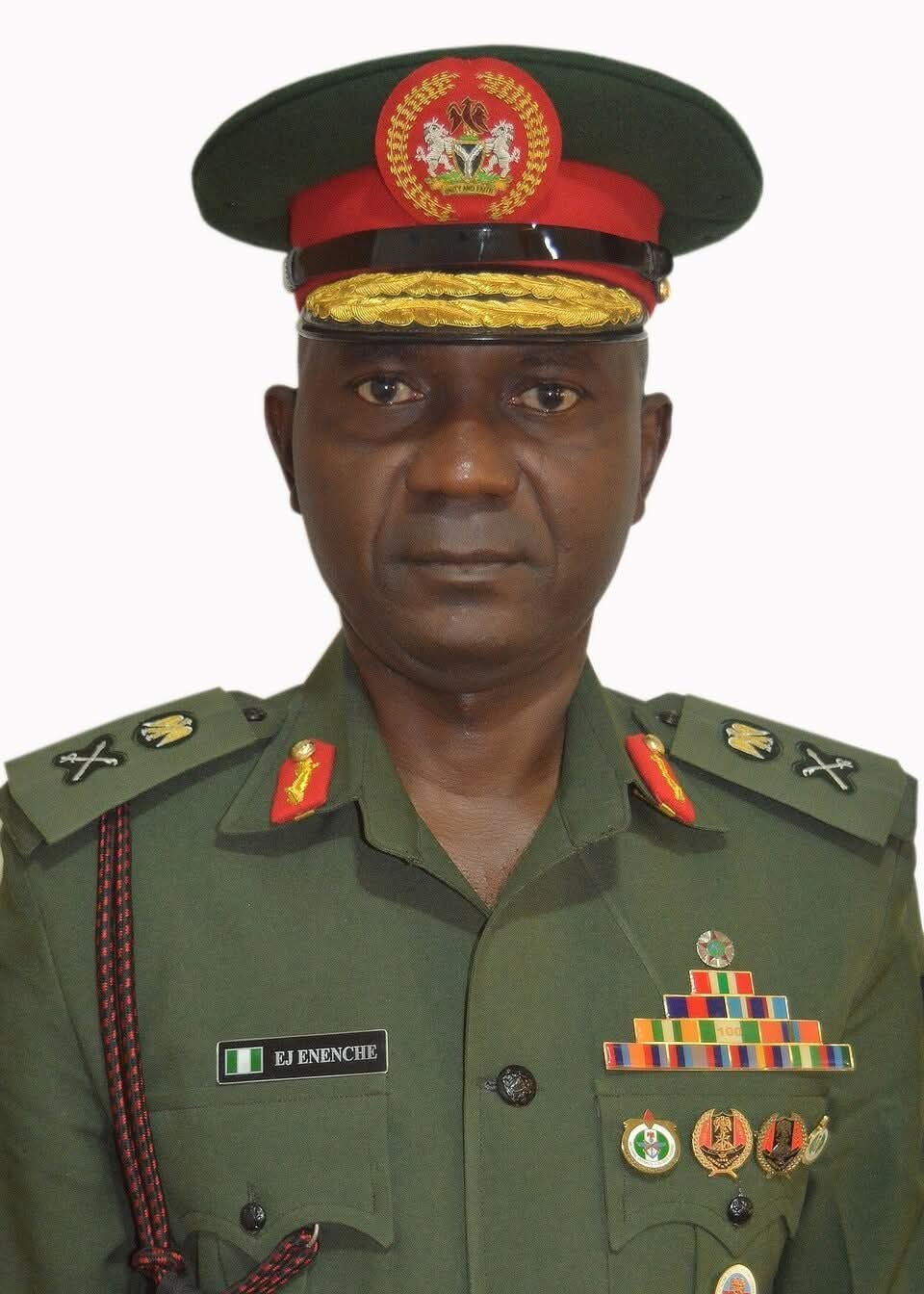News
There’s No Free Ticket” – Canada Warns Nigerian Asylum Seekers Crossing From USA
The Canadian government said it’s working with U.S. visa officials in Nigeria to mitigate the surge of migrants coming to the United States seeking a safe haven in neighboring Canada.
There’s a growing number of Nigerian asylum seekers who legally travel to the United States on a visa and stay for a brief time before attempting to cross the border into Canada, according to the Canadian government. In response, three Canadian officials have been stationed to work with U.S. visa officials in the Nigerian city of Lagos to “combat abuse of U.S. travel documents,” the government announced in a press release Monday.
“Coming across the border in a way that seeks to circumvent our procedures is no free ticket to Canada,” Canada’s Minister of Public Safety and Emergency Preparedness Ralph Goodale said in a statement. “We will continue to ensure an orderly managed border, including the compassionate treatment of those who genuinely need Canada’s protection. And we will continue to work with the United States to deter the misuse of travel documents that has helped drive the influx.”
Canada’s Minister of Immigration, Refugees and Citizenship Ahmed Hussen will also travel to the West African nation this month to meet with Nigerian officials about the issue.
“Our government’s priority first and foremost is to ensure that all laws are followed to protect the safety and security of Canadians,” Hussen said in a statement.
The U.S. Embassy and Consulate in Nigeria did not respond to ABC News’ request for comment Wednesday.
More than 25,000 asylum seekers were apprehended by the Royal Canadian Mounted Police, mostly in Quebec, as they crossed “irregularly” into Canada from the United States between the ports of entry from January 2017 through March of this year. The influx of irregular border-crossers appears to be on the rise, and there’s concern the number will soar as the weather warms up.
The number of asylum seekers apprehended by the national police force in the first three months of this year was more than double the amount in the same period last year. And last year, the number intercepted at the border more than tripled in July and August, according to figures from the Canadian government.
Many of the asylum seekers crossing into Canada last year were Haitians who feared they would lose their temporary protected status (TPS) in the United States, after President Donald Trump’s administration announced it will end the program for Haitian immigrants by July 2019.
So far this year, most of the asylum seekers crossing into Canada by land have been Nigerian citizens, the Canada Border Services Agency confirmed to ABC News.
“Nigerians do not want to settle in the U.S. but in Canada. It is much easier for a citizen of Nigeria to obtain a tourist visa for the U.S. than for Canada,” Stephane Handfield, an immigration lawyer in Montreal, told ABC News in French. “So they get a U.S. tourist visa, stay a few days in the U.S. and cross the Canadian border.”
Handfield said it’s also easier for asylum seekers to obtain refugee status in Canada than in the United States.
Nigerians are fleeing their home country for a number of reasons, such as poverty, persecution and violent conflict, including Boko Haram’s years-long insurgency. The Nigeria-based jihadist group, which seeks to establish an Islamic state, has killed more than 20,000 people and displaced some 2.3 million since 2009, according to the latest figures from the United Nations.
“When people are fleeing persecution, whether they’re in Nigeria or elsewhere, they will take whatever method and route is available to them,” John Cockell, spokesman for the United Nations High Commissioner for Refugees in Canada, told ABC News. “International humanitarian law recognizes this and that’s why asylum seekers are not penalized for entering a country using irregular means, as many choose to do in the case of Canada.”
“We feel [Canadian] authorities have actually done a very good job with managing the increased numbers,” Cockell added.
The Canadian government said it will build new facilities for short-term accommodations at a popular border crossing into the province of Quebec from New York state. Canadian officials will also fast-track work permits for asylum seekers, so they can financially support themselves and their families while they wait to see if their claim for protection is granted.
“While we adhere to international conventions and want to offer asylum to those fleeing persecution and war, the fact remains that there are very specific laws, rules and criteria to be respected in order to find refuge in our country,” Canada’s Minister of Transport Marc Garneau said in a statement.
ABC News


News
Alaafin Should Avoid Confrontation With Oyo Govt — Eselu of Iselu

The Eselu of Iselu Kingdom, Oba Akintunde Akinyemi, has advised the Alaafin of Oyo, Oba Abimbola Owoade I, to avoid a direct confrontation with the Oyo State Government over the proposed rotational chairmanship of the state’s Council of Obas.
Oba Akinyemi warned that open defiance of the government’s decision could attract serious consequences, noting that state governments possess the constitutional powers to install or depose traditional rulers in cases of insubordination or disobedience.
According to the monarch, the governor’s decision is not unusual, as similar rotational arrangements are practiced in other states across the country. He added that the situation could have been handled differently, stressing that the Alaafin should not have publicly challenged the policy, particularly as he was not consulted before its announcement.
Meanwhile, the Alaafin of Oyo has denied claims that he met with Governor Seyi Makinde or endorsed the rotational chairmanship. He maintained that his opposition to the move had already been formally communicated to the governor through a memo submitted by the Oyo Council of Elders.
The controversy has continued to spark reactions, with groups such as the Oyo Scholars Congress and the Oyo Global Forum throwing their weight behind the Alaafin. The groups argue that the rotational system distorts Yoruba history and undermines the traditional status and authority of the Alaafin of Oyo.


News
Bandits, Terrorists Do Not Keep Promises — Defence Minister Warns Against Negotiations

Nigeria’s Defence Minister, General Christopher Musa (rtd), has strongly cautioned against negotiating with bandits and terrorists, describing such efforts as deceptive and counterproductive.
According to him, criminal groups do not honour agreements and often use negotiations as a tactic to buy time before launching fresh attacks. He cited past incidents, including in Katsina State, as examples where dialogue failed despite repeated warnings.
“These people do not understand negotiation. It is nothing but deception. When they come to negotiate, they are only seeking an advantage, and once it is granted, they turn around and attack again,” he said.
The Defence Minister urged both the public and government authorities to discontinue any form of engagement with bandits and terrorists, insisting that such groups have no regard for truth or accountability.
“They never keep their word. They lie, do not fear God, and will always return after negotiations,” Musa added.


News
Anyone Opposing U.S. Strikes Is Nigeria’s Enemy or Profiting From Insecurity — Ex-General Enenche


A former Nigerian military general, Enenche, has described opposition to United States support and strikes against terrorists as unpatriotic, insisting that such resistance only aids insecurity or serves personal interests.
Reflecting on his experience in active combat zones over two decades ago, Enenche said he witnessed firsthand the human cost of insecurity. According to him, security goes beyond the battlefield, affecting human lives, the economy, and even cyber space.
“As a military man who fought in that area over 20 years ago, I saw with my own eyes the casualties, the rage and the devastation. When you talk about security, you are talking about human security, economic security, cyber security. It affects everyone,” he said.
He welcomed the United States’ decision to support Nigeria, describing it as a positive development for the country. Enenche referenced former U.S. President Donald Trump’s commitment to assist Nigeria, noting that such cooperation signals hope rather than danger.
“America has come out boldly to say, ‘We are going to help you’. President Donald Trump said they will assist Nigeria. For me, this is the beginning of good things to come for this country,” he stated.
The retired general criticized individuals who consistently oppose foreign support, accusing them of spreading fear and pessimism.
“Where some people see negatives, we should see positives. Those who constantly project fear and pessimism, I see them as enemies of this country,” he said.
Drawing comparisons with Nigeria’s past peacekeeping missions, Enenche questioned why similar objections were not raised when Nigerian troops intervened in countries such as Liberia, Sierra Leone, and Congo.
“Anytime Nigerians cooperate and act as a team, we get results,” he added.
He further clarified that while foreign allies may not deploy ground troops, Nigeria must still take responsibility for on-ground operations, with strong backing from state and local governments.
“They may not put boots on the ground, but we must do the foot-on-ground work. We must deploy the necessary resources, and that is where state governments and local governments must support this effort,” he said.
Highlighting the sophistication of recent operations, Enenche emphasized that the strikes were intelligence-driven and precise, targeting terrorist strongholds.
“Look at the capacity, look at the weapons used. Do we have that capability? This was intelligence-driven and precise. These terrorists do not want to be followed to their staging or assembly areas,” he concluded.
-

 News2 years ago
News2 years agoHardship: We Plan To Establish A National Commodity Board To Crash Food Prices – VP Shettima
-
News8 years ago
Blog Reader; Samson Osagiede Celebrates Fiancè Benedicta Daniels’s Birthday With Sweet Words
-
Home9 years ago
News Channel claims Donald Trump is an orphan from Pakistan,share alleged childhood photo
-
Home9 years ago
Another $175m Found in Patience Jonathan’s wife’s firm’s Bank Account
-
Home9 years ago
Oil Spillage: House of Reps Member Shares Photos of the Water her Constituents Drink .
-
Home9 years ago
Zara Buhari & Ahmed Indimi’s Wedding Access Card
-

 Sport7 years ago
Sport7 years agoModric, Marta Wins 2018 FIFA Best Player Of The Year Awards ⚽️
-
News8 years ago
The Best Video You’ve Seen Today?
